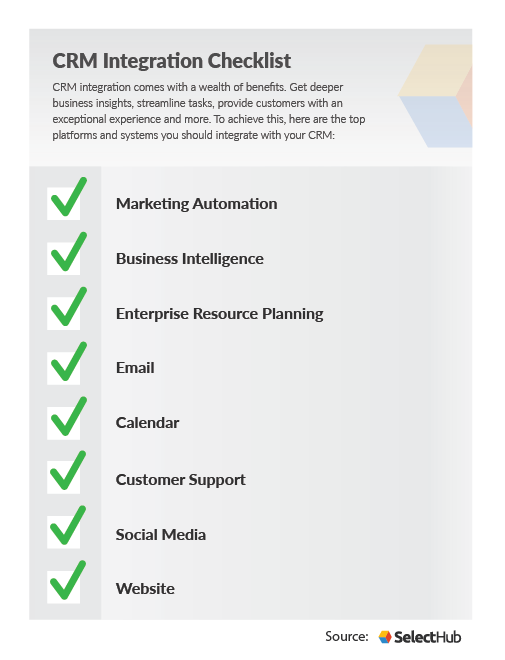CRM Integration helps growing businesses seamlessly use multiple software applications for various business processes and functions. Integrating them with Customer Relationship Management (CRM) software will help them understand their customer much better and improve productivity. Read on to know more about the benefits of CRM Integration.
The customer holds center stage in any business. This makes business applications and systems containing customer data essential. Companies undergoing Digital Transformation must integrate such applications and allow them to talk to each other. This will help create a single customer view and maximize productivity.
Your Enterprise Resource Planning (ERP) software and the CRM software must act as a coherent unit to gain efficiency in your critical business processes. Once your tech stack integrates with the CRM, the single customer view will be associated with business applications across departments. Your entire workforce will better understand the customer and how they interact with the business. As a result, it will help them make better decisions to serve the customer in a more personalized manner.
A CRM holds customer data from the front office, while an ERP and other applications handle back-office data. It is crucial to integrate such back-office applications with CRM to have an accurate view of customer information once a service has been provided.

The Objective & Benefits of CRM Integration
The objective of CRM integration is to understand the customer demographic and deliver the right products and services to them. Data Analysis becomes possible and highly valuable when we have all the customer information at a single window.
Some of the other benefits are:
- Improve Departmental Efficiency
- Eliminate Data Duplication
- Employee Collaboration
- Quicker Sales Approvals
CRM Integration will help to gather customer data from all the disparate sources. A CRM stores the contact information, a POS system handle the purchase information, accounting software contains the transactions, and so on. It also becomes difficult to relate such distributed data and present them while reporting. So, a business needs to understand the complete customer journey and to improve customer experience. This is not possible without a centralized system.
A CRM provider only has a handful of native integrations. Professionally managed IT service companies help develop 3rd Party Integrations. As a result, they help create custom CRM Integrations that unique to your business processes and functions.
Post integration, the most likely obstacle companies face is the standardization of data formats from different sources. So, to support multiple data formats, it must be ensured that the data exchanges are transformed.
Eventually, the more systems you integrate with your CRM, the less manual work your business needs. There will be an increase in access for people who need to use data, valuable insights will come up, and relationships with customers will be managed more effectively.



